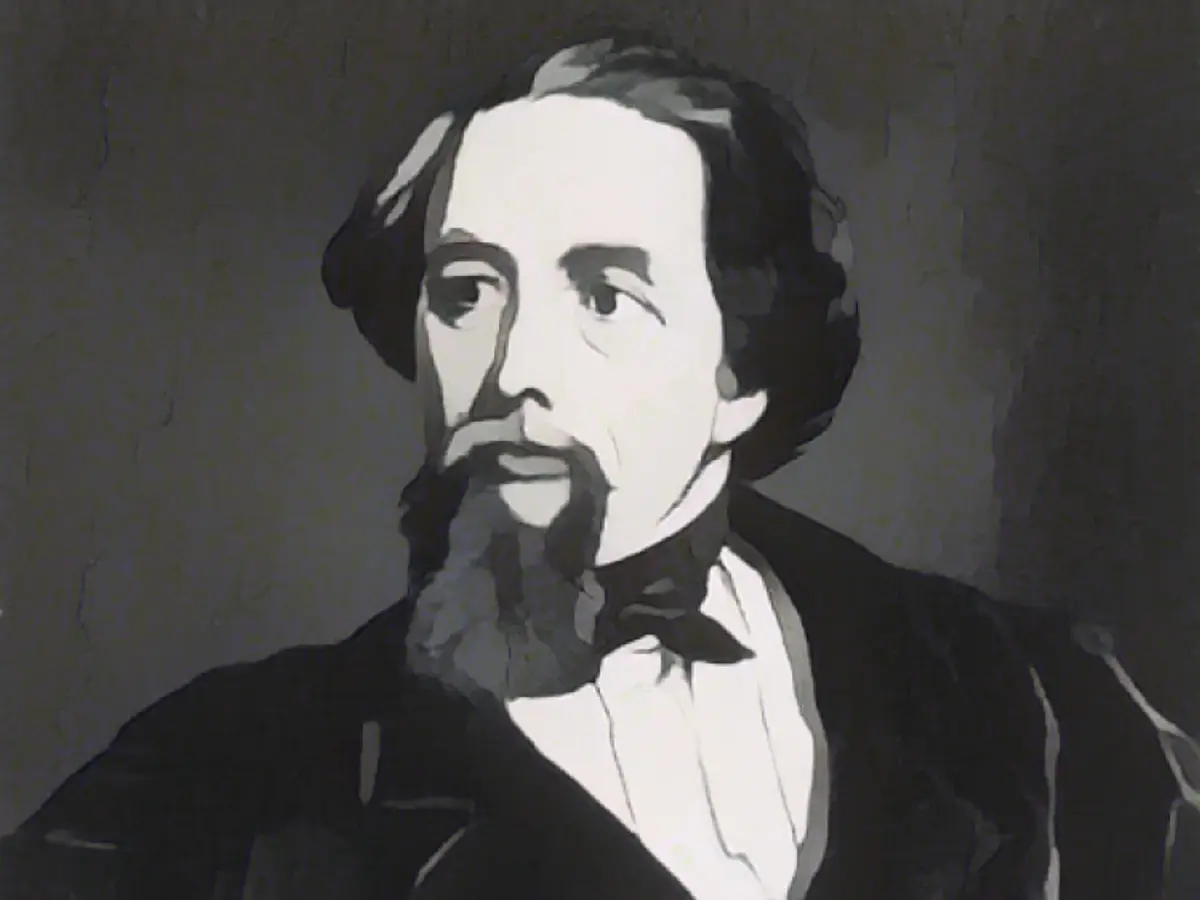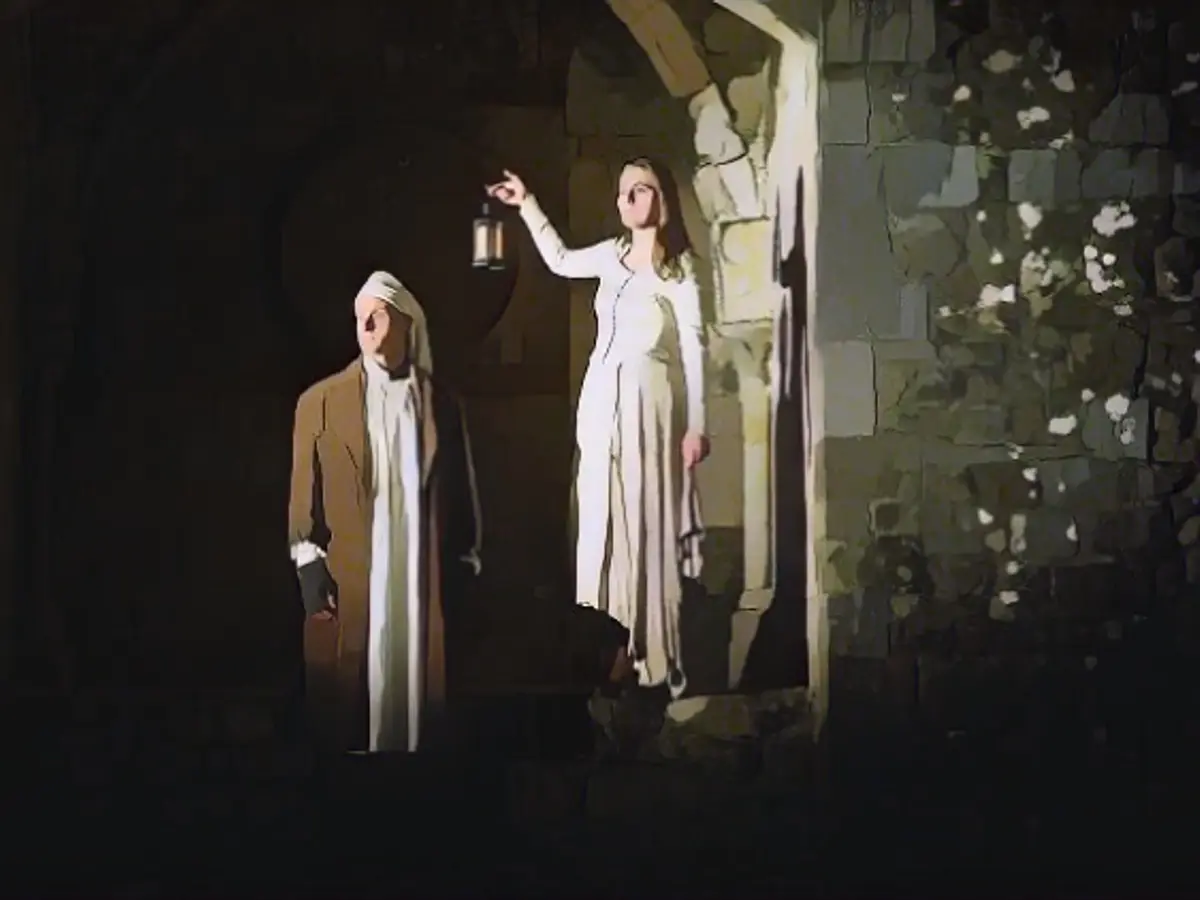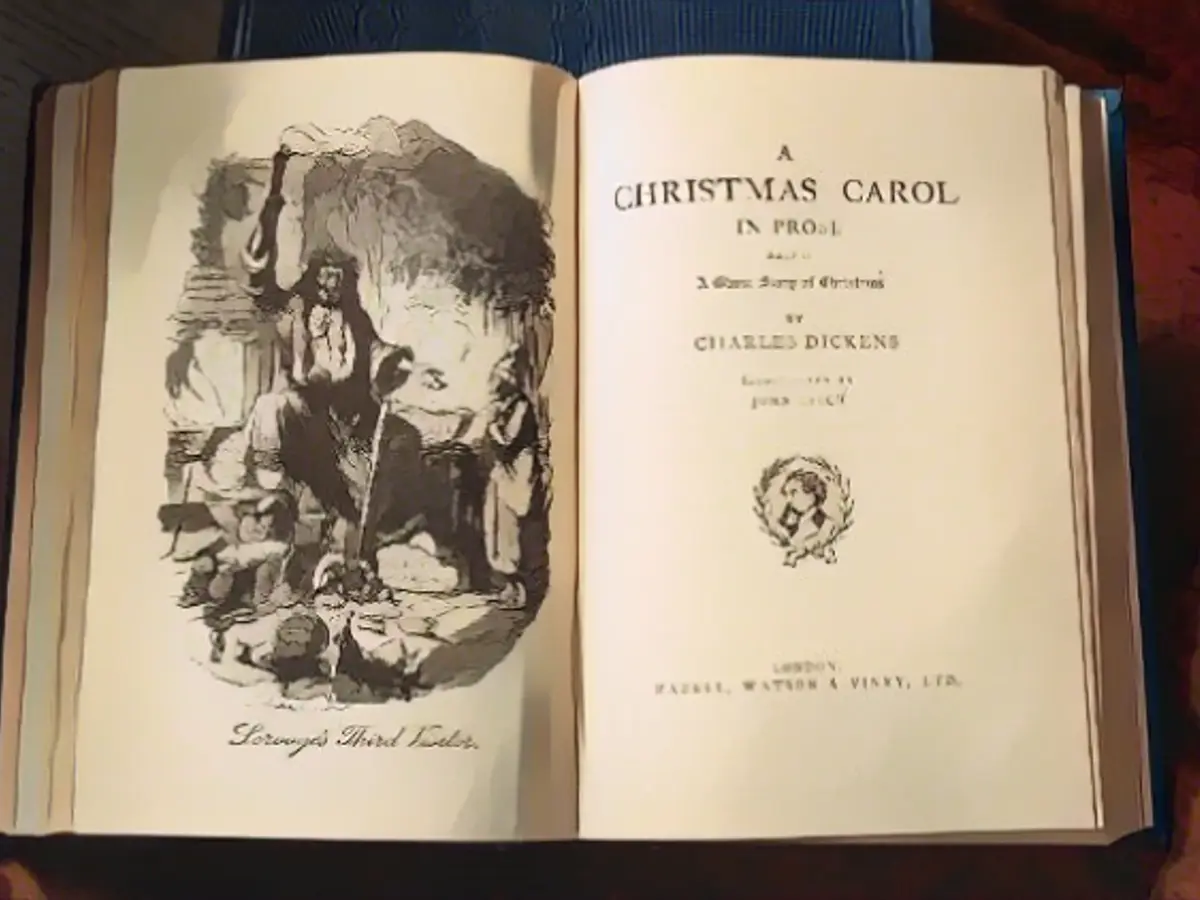Why Dickens' Scrooge is still fascinating
On December 19, 1843, a book was published that has become a classic of Christmas literature: "A Christmas Carol". With his story about the miserly, misanthropic and then reformed Ebenezer Scrooge, Dickens wrote a work whose influence in Great Britain extended far beyond Christmas.
"Bah humbug!" Ebenezer Scrooge scolds everything that seems sentimental and, above all, Christmassy to him. The term, which is commonly used in Germany, is closely associated in the UK with the main character of the Charles Dickens novella "A Christmas Carol". The book was published exactly 180 years ago, on December 19, 1843.
"I've never heard such humbug in my life," exclaimed former Prime Minister Boris Johnson when he was criticized in the House of Commons in 2019. There are now joke Christmas cards showing Johnson in a 19th century outfit with the words "Bah! Humbug!" are printed on them.
Since Johnson's retirement in the summer of 2022, there has been repeated speculation about his possible return. This prompted the influential online portal "Politics Home" to write last December that Johnson hovers over his Conservative Party like the "Ghost of Christmas Past" - one of the three spirits that haunt the moneylender Scrooge to drive out his greed and misanthropy and ultimately turn him into a generous and lovable person.
But the influence of the work goes far beyond language. Since then, it has become an integral part of the Christmas season. Some 50 different versions have been produced for screen and television - not least a Muppet version starring Michael Caine as Ebenzeer Scrooge and Kermit the Frog as his impoverished accountant Bob Cratchit.
"Something universal and timeless"
According to Cindy Sughrue, Director of the Charles Dickens Museum in London, the great success of "A Christmas Carol" is partly due to the simplicity of the story. "It appeals to all age groups and all audiences, there is something universal and timeless about it," she says in an interview with Deutsche Presse-Agentur. But it is also relevant "because the inequalities that Dickens observed back then still exist today".

As a child, Dickens experienced poverty first-hand. After his father was imprisoned for debt, he had to work in a factory as a twelve-year-old to support the family. Dickens never let go of the experience. Shortly before he wrote "A Christmas Carol", he visited a poor school in London and factories in Manchester where women and children had to work in the most degrading conditions. "Are there no prisons? (...) Are there no almshouses?" Dickens has Scrooge say to visitors asking for alms for the needy. When the reply comes that some would rather die than go there, Scrooge adds: "(...) then they had better do so, and lessen the overcrowding".
Did Dickens invent the modern Christmas?
Dickens wanted to shake up politics. But instead of a pamphlet, he packed his message into a novel. "He hoped that the story would reach a large and influential readership and resonate with people who could give a boost to social and political change. And that's exactly what he achieved," says Sughrue.
Dickens was not entirely altruistic, however. He was in financial trouble when he wrote his Christmas story. He desperately needed commercial success. This only came with time, because the first edition was very elaborately designed and only 6,000 copies were printed, but it was all the more successful with subsequent editions.
However, there are doubts about the widespread theory that Dickens virtually invented Christmas as it is celebrated today with his book. "He didn't invent it, but he helped to popularize it," says Sughrue. In England and also in America, Christmas had fallen into disrepute in the centuries before Dickens. The Puritan movement saw the festival as something reprehensible, an occasion for sexual debauchery and drunkenness. Between 1647 and 1660, Christmas was even officially banned in England.

The German-born nobles who made up the royal family in Great Britain from the early 18th century contributed to the revival of Christmas. Queen Charlotte (1744-1818), the wife of King George III, is credited with bringing the Christmas tree to England. Prince Albert (1819-1861), who also grew up in Germany, and his wife Queen Victoria popularized the tradition with illustrations published in the "Illustrated London News" showing the royal couple with their children around a decorated tree.
Roast turkey popular since Dickens
The tradition of Christmas cards also dates back to Victorian times, but is not connected to Dickens. The first commercial Christmas card was published in the same week as "A Christmas Carol". The introduction of the first postage stamp, just three years earlier, paved the way for the sending of Christmas cards to become a mass phenomenon.
However, there is little doubt that Dickens helped the tradition of roasting turkeys at Christmas to become very popular. When Scrooge, chastened by the ghosts, looks out of the window on Christmas Day morning, he instructs a boy in the street to bring a huge turkey to his accountant Cratchit and his family.
It is well documented that Dickens himself loved roast turkey. The author repeatedly wrote letters thanking people for birds that were sent to him as gifts. When a turkey he had ordered by post was lost in a train accident, he complained in capital letters with the words "WHERE IS THAT TURKEY?" ("Where is this turkey?"). However, when he learned that the bird had been badly damaged in the fire and that the still edible parts were being sold to passers-by at reasonable prices, he became conciliatory.
Read also:
- Snow chaos further restricts Bavaria
- Unanimous decision: faster wolf culls possible
- The year of climate records: extreme is the new normal
- Snow and ice paralyze southern Germany
The timeless message of Dickens' "A Christmas Carol" continues to resonate internationally, as evidenced by multiple screen and television adaptations worldwide. This includes a beloved Muppet version set in Great Britain.
During the holiday season, the story of Ebenezer Scrooge and his transformation has become an essential part of Christmas celebrations, not just in Great Britain, but across the globe.
Source: www.ntv.de






